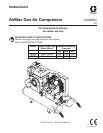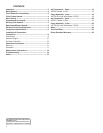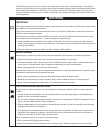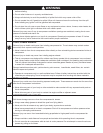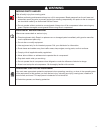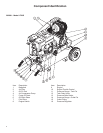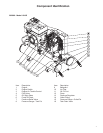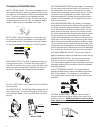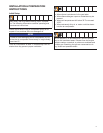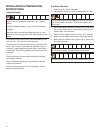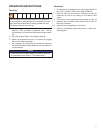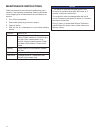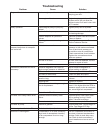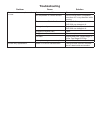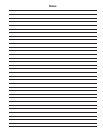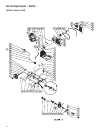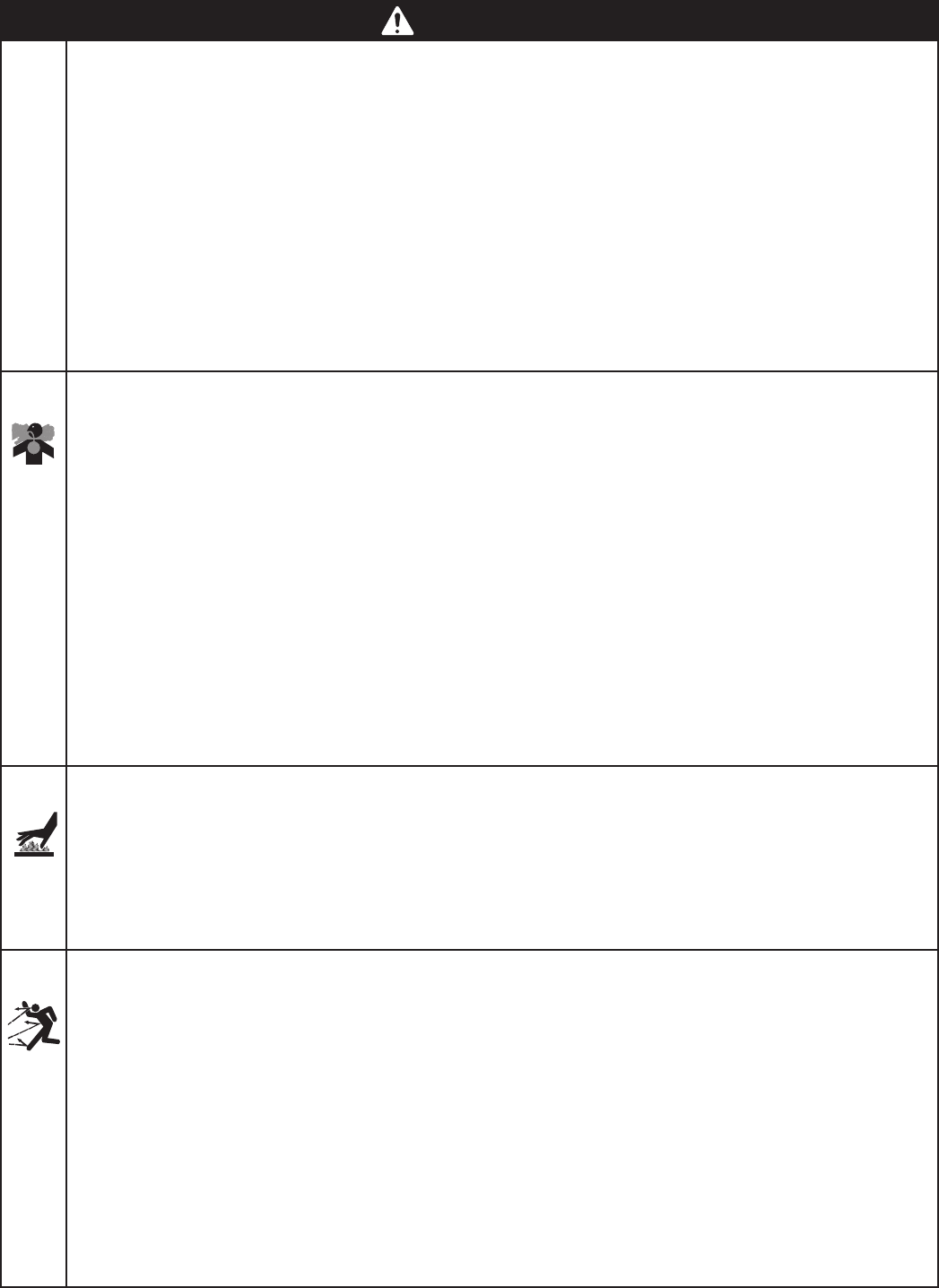
4
before refueling.
• Do not refuel indoors or in a poorly ventilated area.
• Always refuel slowly to avoid the possibility of spilled fuel which may cause a risk of re.
• Do not operate the unit if gasoline is spilled. Wipe unit clean and move the unit away from the spill.
Avoid creating any ignition until the gasoline has evaporated.
• Do not store the unit near an open ame or any equipment such as a stove, furnace, water heater, etc.,
which utilizes a pilot light or devices which can create a spark.
Serious injury may occur if any air compressor ventilation openings are restricted, causing the air com-
pressor to overheat and start a re.
• Never place objects against or on top of air compressor. Operate air compressor at least 12 inches
away from any wall or obstruction that would restrict proper ventilation.
Serious injury or death could occur from inhaling compressed air. The air stream may contain carbon
monoxide, toxic vapors or solid particles.
• Never inhale air from the air compressor either directly or from a breathing device connected to the air
compressor.
Serious injury or death may occur from inhaling engine exhaust.
• This air compressor was designed for outdoor use. Never operate this air compressor in an enclosed
area. Always make certain there is adequate ventilation (fresh outside air) for breathing and combustion.
This will prevent the buildup of dangerous carbon monoxide gases. Beware of poorly ventilated areas,
or areas with inadequate exhaust fans.
Sprayed materials such as paint, paint solvents, paint remover, insecticides, weed killers, etc. contain
harmful vapors and poisons.
• Operate air compressor only in a well ventilated area. Follow all safety instructions provided with the
materials you are spraying. Use of a respirator may be required when working with some materials.
Serious injury could occur from touching exposed metal parts. These areas can remain hot for some time
after the air compressor is shutdown.
• Never allow any part of your body or other material to make contact with any exposed metal parts on
the air compressor.
• Never allow any part of your body to contact the engine mufer or adjacent areas.
Soft tissue damage can occur from the compressed air stream.
• Always wear safety glasses to shield the eyes from ying debris.
• Never point the air stream at any part of your body, anyone else or animals.
• Never leave pressurized air in the air compressor. Shut off air compressor and relieve pressure when
storing or attempting maintenance.
Serious injury can occur from loose debris being propelled at a high speed from the compressed air
stream.
• Always maintain a safe distance from people and animals while operating the air compressor.
• Do not move the air compressor while air tank is under pressure. Do not attempt to move the air com-
pressor by pulling on the hose.
WARNING



